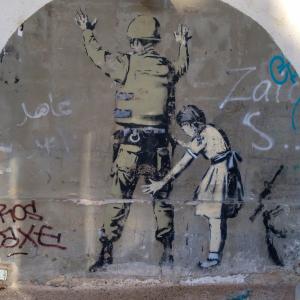The United States’ has been at war in Iraq, Afghanistan, and other Persian or Southwest Asian for nearly 20 years. This is not normal. This is wrong. A generation of war is a costly human tragedy in terms of lives and money. It is a soul-souring force in terms of understanding, allowing us to become embittered toward others. It destroys imagination of the possibilities of hope and peace, coloring all our ingenuity toward feeding destruction. War has become normal. Allowing war to be come normal is a sin. If we think war is normal, we are broken people. War is wrong. It represents a failure. War deadens creative problem solving. War is not normal. 
“Normal” Changes
Normal is a strange concept. A norm, is a rule, a standard, something to conform to. War, is the absolute breakdown of norms. It is the opposite of normal. Though, it is familiar, it is still not the norm toward which we aspire.
It is true, we are always in state of change. The cliché is true: “The only thing that is constant is change.” Try as we might, though, as social beings, taking our cues from others, we are constantly seeking to find a way to be, or to get back to, or approach “normal.” Whatever normal is, as ambiguous as it may be, it does have a force of gravity about it. Whether it be in economics, psychology, health and fitness, daily schedules, or politics, we have a hunch about normality. When we get sick, or have had a chaotic schedule, a hectic time at work, or a relationship that has gone off the rails, we will speak of normal as a goal, something to recapture. We say, “when things get back to normal.”
But what happens when something which was once abnormal, an aberration, a skewed form of living, becomes so familiar? In family systems theory, those situations become the setting for continuing pathology. A simple family genogram will demonstrate that normal can be unhealthy and damaging. In certain families, codependency is normal, or violence, or substance abuse, or toxic relationships are normal. Because something is normal it is not necessarily right.
Are we discerning enough to catch the difference between situational normality and ethical normality? In one view one accepts the familiarity and predictability as normal, and therefore correct, or even “good”. The other however, regardless of how commonplace, denies it from being morally acceptable. War is a failure. War is a moral failure. War is wrong.
War Deadens the Imagination
This is not a geopolitical commentary. This is an existential and psychological challenge. I don’t want my imagination to become militarized. One can find diapers in military camo print designs. When imagination sees all the opposition and challenge in the language of warfare, we limit our choices for response and reaction. Dr Lisa Schirch, research professor with the Center for Justice and Peacebuilding at Eastern Mennonite University, made a simple discovery. When defense and military responses are your only solutions, we escalate the problem. Schirch developed the “3D” initiative to deal with international conflict: development and dialogue before defense.
Schrich, a chapel address, pointed listeners Jesus’ approach as well as his words:
In Matthew [5:43-48], Jesus suggests we walk toward those with whom we disagree and those who are different. We greet them. We ask questions. We recognize their humanity. This is God’s security strategy. It is not just a moral strategy. It is also effective (A Mennonite in the Pentagon).
Her research and teaching has lead her to teach peacebuilding in the centers of military might: West Point, The US Army War College, and the Pentagon. “The top generals in the Pentagon have had one consistent message about conflict in the Middle East,” Schirch said. “’There is no military solution.” The lack of a military solution is the same as no solution – if your only frame of reference is warfare. In Martin Luther King’s Beyond Vietnam sermon at Riverside Church in New York, April 4, 1967, he quoted a Vietnamese monk who has said:
Each day the war goes on the hatred increased in the hearts of the Vietnamese and in the hearts of those of humanitarian instinct. The Americans are forcing even their friends into becoming their enemies. It is curious that the Americans, who calculate so carefully on the possibilities of military victory, do not realize that in the process they are incurring deep psychological and political defeat. The image of America will never again be the image of revolution, freedom, and democracy, but the image of violence and militarism.
A Longer View
In a typical myopic fashion, we look at our current context and quickly assert normalcy. We are prone, perhaps as a coping mechanism, to have a wide definition of normal. We adapt. Adaptation is required. But in the longer view of our history – is war normal? In view of our aspirations, is war normal? In view of our coping mechanisms, is war preferred to other alternatives? Is this the norm we go by? Has war and warring become our “go-to” response?

I remember as a kid when the war in Viet Nam concluded. I remember seeing the evening news, during which casualties and wounded were numbered like scores in a football game. Daily body counts. There were voices, loud voices that protested – arguing that war was not the normal state of things. Artists, especially popular musicians, tried to persuade that there was a competing normal toward which we should aspire. But then in 1974, it was done. We left Viet Nam. I remember thinking that this was the first time in my life that we were not at war. Now, since we have a generation of young people who have not known that experience of warlessness. How do we now, after nearly two decades, attempt to awaken the realization that war is wrong? How do we inspire the conception that war is a failure of diplomacy and humanity?
A Few Ideas
- Know the real toll: Estimated 500,000 in Afghanistan and Iraq, when including civilians, contractors, and other combatants. Thoughtfully become aware with the fact that 37,000 people are displaced daily due to conflict.
- Know the real cost: Since military spending, and much of the spending on warfare is with borrowed money, the 1.7 trillion, may end up costing about 7.9 trillion.
- Know the human experience: The Independent’s story about “NM” and how she and her family would “wait for death.” Watch this, from Save the Children and allow yourself to imagine the experiences of families.
Begin with these. Then expand your search for firsthand stories. When conversations arise about “defense” wonder, perhaps out loud, how much investment has there been in development and dialogue.
War is not normal. War is always wrong. Begin with these convictions.












